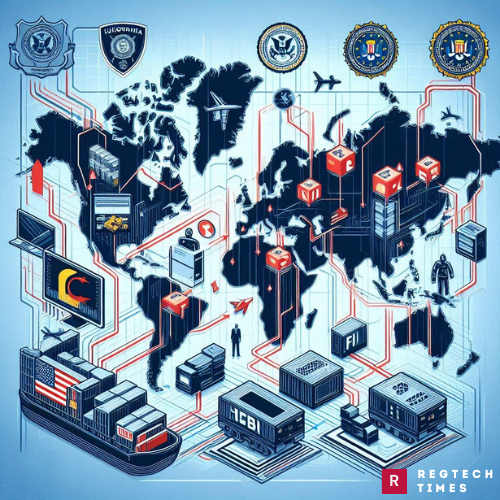In a recent court case of significant international interest, Nikolay Goltsev from Montreal, Canada, and Salimdzhon Nasriddinov from Brooklyn, New York, pleaded guilty to charges related to a complex export control violation scheme. This scheme involved the illicit procurement and export of millions of dollars’ worth of electronic components from the United States to sanctioned Russian entities, including military companies. The components, crucial for the development of missiles, drones, and other military equipment, were later found in seized Russian weapons platforms and signals intelligence equipment used in the ongoing conflict in Ukraine.
The Details of Nikolay Goltsev and Salimdzhon Nasriddinov’s Scheme
According to court documents and statements from law enforcement officials, Nikolay Goltsev and Salimdzhon Nasriddinov orchestrated a sophisticated operation spanning multiple countries. Their actions not only violated U.S. laws but also supported Russian military efforts directly involved in the conflict in Ukraine. The components they exported were identified in seized Russian military assets, including missiles, drones, electronic warfare systems, and reconnaissance equipment used against Ukrainian forces.
The investigation uncovered that Nikolay Goltsev and Salimdzhon Nasriddinov were well aware of the military purposes for which the electronics they exported could be utilized. The messages exchanged between them indicated a conscious effort to avoid detection and scrutiny by U.S. authorities. For instance, they discussed diversifying shipments among multiple companies and countries to evade suspicion.
Legal and Geopolitical Implications
The guilty pleas of Nikolay Goltsev and Salimdzhon Nasriddinov highlight the serious repercussions of undermining U.S. export control regulations. Both individuals face significant prison sentences, reflecting the gravity of their offenses and the broader implications for national security. Assets amounting to approximately $1.68 million related to the illegal scheme have been seized by U.S. authorities.
This case also highlights the broader geopolitical tensions between the United States and Russia, exacerbated by Russia’s military actions in Ukraine. The U.S. government, through agencies like the FBI, Homeland Security Investigations (HSI), and the Department of Commerce, has intensified efforts to dismantle illicit procurement networks that bolster Russian military capabilities. The coordinated efforts of these agencies, under initiatives like the Disruptive Technology Strike Force and Task Force KleptoCapture, aim to prevent critical technologies from falling into the hands of authoritarian regimes and hostile states.
Cooperation and Investigation Details
The investigation into Nikolay Goltsev and Salimdzhon Nasriddinov’s activities involved extensive cooperation between various law enforcement agencies and international partners. This collaborative effort highlights the global nature of illicit procurement networks and the necessity of coordinated enforcement actions to combat them effectively.
According to court records, the defendants used front companies based in Brooklyn, such as SH Brothers Inc. and SN Electronics Inc., to disguise their activities. They systematically purchased dual-use electronics from U.S. manufacturers and distributors, then routed them through intermediary companies in countries like Turkey, Hong Kong, India, China, and the United Arab Emirates before ultimately shipping them to Russia. Some of these electronic components were crucial for Russia’s precision-guided weapons systems and other advanced military technologies.
The Impact on Ukraine and Beyond
The components illegally exported by Nikolay Goltsev and Salimdzhon Nasriddinov were found in various seized Russian military assets, including missiles, drones, electronic warfare systems, and reconnaissance equipment used against Ukrainian forces. This direct link between their actions and the ongoing conflict in Ukraine highlights the devastating impact of illicit arms proliferation and the role of stringent export controls in mitigating such risks.
The prosecution and guilty pleas of Nikolay Goltsev and Salimdzhon Nasriddinov represent a significant victory in the ongoing battle against illicit activities that support hostile military actions. Their case highlights the imperative for rigorous enforcement of export control laws to safeguard international security and stability. Moving forward, the outcomes of this case will likely influence future enforcement strategies and policies aimed at preventing the exploitation of sensitive technologies for military purposes.
The complex export control violation scheme orchestrated by Nikolay Goltsev and Salimdzhon Nasriddinov serves as a reminder of the serious consequences associated with undermining international regulations. It highlights the determination of the U.S. government and its allies to dismantle illegal procurement networks and safeguard vital technologies from exploitation by authoritarian regimes and adversarial states.



